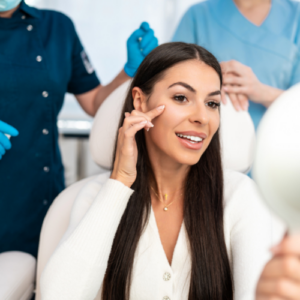Causes of Hair Loss
Hair loss, medically known as alopecia, is a common condition that affects millions of people worldwide, regardless of age, gender, or ethnicity. While it’s often associated with aging, hair loss can occur at any stage of life and can have various causes. Understanding the underlying reasons for hair loss is crucial for effective management and potential treatment.
Understanding the Hair Growth Cycle
Hair growth occurs in three phases:
- Anagen Phase: This is the active growth phase, lasting anywhere from two to seven years. During this phase, hair cells divide rapidly, leading to visible hair growth.
- Catagen Phase: Also known as the transitional phase, this short period (about two weeks) signals the end of active hair growth. The hair follicle shrinks, detaching from the dermal papilla.
- Telogen Phase: Referred to as the resting phase, hair follicles remain dormant for approximately three months. At the end of this phase, old hair falls out, and the anagen phase begins anew.
Common Causes of Hair Loss
- Genetics:
- A common cause of hair loss, androgenetic alopecia, is hereditary and affects both men and women.
- In men, it’s often referred to as male pattern baldness, characterized by a receding hairline and thinning at the crown.
- Women typically experience diffuse thinning across the scalp.
- Hormonal Changes:
- Hormonal imbalances can lead to hair loss. For instance, fluctuations in androgens (male hormones) and estrogens (female hormones) can disrupt the hair growth cycle.
- Conditions such as pregnancy, childbirth, menopause, and polycystic ovary syndrome (PCOS) or medication such as birth control can trigger hormonal shifts that contribute to hair loss.
- Medical Conditions and Treatments:
- Various medical conditions and treatments can cause hair loss as a side effect. These include thyroid disorders, autoimmune diseases (such as alopecia areata), infections, and certain medications like chemotherapy drugs.
- Nutritional Deficiencies:
- Inadequate intake of essential nutrients, particularly iron, protein, vitamins (such as vitamin D and B vitamins), and minerals (such as zinc), can impact hair health.
- Malnutrition or crash dieting can lead to temporary hair loss due to nutrient deficiencies.
- Stress and Psychological Factors:
- Psychological stress, whether acute or chronic, can disrupt the hair growth cycle, leading to increased shedding.
- Conditions like trichotillomania, a compulsive hair-pulling disorder, can also result in hair loss.
Conclusion
Hair loss is a multifaceted issue influenced by genetics, hormonal fluctuations, medical conditions, lifestyle factors, and environmental triggers. While some causes, such as genetic predisposition, cannot be prevented, others, like maintaining a balanced diet and managing stress levels, can be addressed to mitigate hair loss risk.
Seeking professional advice from board-certified dermatologists, Dr. Aaron Chen and Dr. Peter Panagotacos, who are hair restoration experts, is crucial for accurately diagnosing the underlying cause of hair loss and developing a personalized treatment plan. With advancements in medical technology and a better understanding of the factors contributing to hair loss, various treatment options, ranging from medications to hair transplant, are available to help individuals manage this condition and regain confidence in their appearance.




 / 291 Reviews
/ 291 Reviews